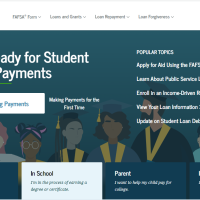Have you ever heard the saying, “If it sounds too good to be true, it probably is?” Every day we see ads promising to help people get of debt quickly by paying less than they owe. Claims range from “secret debt relief programs that credit card companies do not want you to know about”, to claims that a company can help you reduce your debt by “thousands of dollars.” Is either of these claims true? Let’s take a look.
First, consider who is offering these programs. Typically it is a debt settlement company. When you settle a debt, it means you pay off a portion of what you owe to the creditor. You make monthly payments to the debt settlement company, who then takes your payments and deposits them into a savings account. As you continue to make payments, the funds grow until the debt settlement company feels there is enough money to make a deal (negotiate) with the creditor. That may sound very enticing, but that discount in debt comes at a very high cost – namely your credit and your pocket book.
It is true that when faced with a customer who may pay nothing on their debt, a creditor may decide to accept a credit card debt settlement. But the consequences to you are huge.
Debt Settlement Consequences
You can be sued during the debt settlement process. Typically, during the time frame that you are making payments to the debt settlement company, the creditors are not receiving any payments. During this period, a creditor can pursue legal action that may result in your wages being garnished or in a lien against your property. They may also send your account to a third party collection agency.
Your credit is also damaged during debt settlement. Your payment history accounts for approximately 35% of your credit score, while the amounts owed account for about 30% of the score. As you make payments to the debt settlement agency, your creditor account is being marked as late (every month) and incurring additional late fees and interest. Fees make your account balances larger. Late payments and higher balances are reported to the credit reporting agencies which negatively impacts your credit report and score.
Debt settlements may also result in higher taxable income. The Internal Revenue Service considers most of forgiven debt or cancelled debt as taxable income, depending on your asset-to-liability ratio (do you owe more than your assets are worth) at the time the debt was forgiven. You will receive a 1099-C tax form from the creditor if $600 or more is forgiven. In some cases, creditors have been known to sell the unpaid portion of the debt to a collection agency. The bottom line is that you may still be responsible for repaying part of the forgiven debt.
While you are in the debt settlement process, creditor collection calls may sharply increase. Depending on the amounts of debt and the length of time needed to save enough money to settle them, creditors may not receive payments for three to 48 months. This results in more aggressive collection efforts. Collection calls are stressful to deal with day after day, month after month and they are one of the top reasons why people seek help to resolve debt problems.
So, when you hear ads promising to help you get out of debt quickly, easily, or by paying less than you owe, do some research. Ask the company:
- If they are a debt settlement company,
- About their fees - debt settlement companies are not allowed to charge upfront fees for their services
- How their program impacts your credit (be careful because many will come back with comments about how negative your credit is right now),
- If they are settling debt, what do you have to do to get your money back if the debt settlement doesn’t work.
Get some debt settlement advice from an independent party and read up on debt settlement before considering this option. You can find good information on the Federal Trade Commission’s website.
Also, check out the debt settlement company with the Better Business Bureau. It is a good gauge of how other consumers have felt about their debt settlement services.
Remember, your credit report is your financial report card. You need it for employment purposes, renting homes or apartments, interest rates on things like homes and autos, auto insurance rates and much more. It is one of your most important financial assets.
If your debt is becoming unmanageable, contact American Financial Solutions, a non-profit credit counseling agency, who will provide you with a free, confidential financial analysis of your situation and realistic options for getting out of debt.




